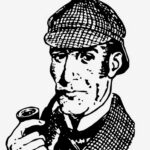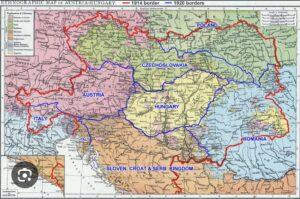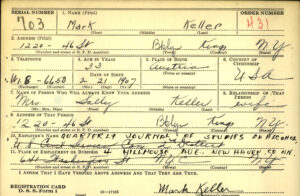 It all started with Playing Detective in the Library: How to Find Information on Your Long Lost Love, presented at the annual NJLA Conference in Atlantic City, NJ in June 2012. The goal was to share the results of our research methods to track down Hungarian scientists, who fled Hungary after the 1956 Revolution and were recruited by the American National Academy of Sciences upon arrival at Camp Kilmer in New Jersey.
It all started with Playing Detective in the Library: How to Find Information on Your Long Lost Love, presented at the annual NJLA Conference in Atlantic City, NJ in June 2012. The goal was to share the results of our research methods to track down Hungarian scientists, who fled Hungary after the 1956 Revolution and were recruited by the American National Academy of Sciences upon arrival at Camp Kilmer in New Jersey.
It was just the introduction to more similar searches, all team efforts, delving deep into personal and professional lives of scholars, such as The Family of E. M. Jellinek.
Genealogy became our friends, whether to discover new facts or corroborate evidence and hearsay. Methods and sources used in previous projects helped fill in the blanks in Mark Keller’s biography too.
A great source of Keller’s life story is his own recollections during an oral history interview conducted by Sheila Blume, who donated the original tapes to the CAS Library. The soundtrack proved to be challenging occasionally, but, for example, with some creative digging, it was not to difficult to ascertain the names of all schools he attended.
 Keller’s birthplace is listed everywhere as “Austria.” He was born in 1907, which, to this Hungarian, obviously translates into the Austro-Hungarian Empire, a multi-national monarchy in Central Europe between 1867 and 1918. On the tape, he names “Rudnitsa” as the village where he was born. Well, a village with that name could be in several countries and counties in our times.
Keller’s birthplace is listed everywhere as “Austria.” He was born in 1907, which, to this Hungarian, obviously translates into the Austro-Hungarian Empire, a multi-national monarchy in Central Europe between 1867 and 1918. On the tape, he names “Rudnitsa” as the village where he was born. Well, a village with that name could be in several countries and counties in our times.
He speaks very fondly of his parents, especially of his mother, who was a highly intelligent Jewish woman, speaking Yiddish at home and Polish with the villagers. This information was helpful to place Rudnitsa to the Silesian part of current Poland. The transliteration of Yiddish names doesn’t seem to be consistent, but his mother was most likely called Hana (spelled as Chana), and his father’s name was Yudah (or sometimes spelled as Yehuda).
 A birth certificate for the young Keller would have been nice, but no luck. Keller provides details about the many variations of his name. Called at home Mordechai, he was renamed Max in New York after the family relocated in 1913. Leaving Hamburg on December 11, traveling with his mother, he was listed as Marcus on the ship manifest. The name Max alternated with Marcus and Marc at school. He is listed as Marcus again on the census in 1925 and 1940, but Mark on the World War II draft card.
A birth certificate for the young Keller would have been nice, but no luck. Keller provides details about the many variations of his name. Called at home Mordechai, he was renamed Max in New York after the family relocated in 1913. Leaving Hamburg on December 11, traveling with his mother, he was listed as Marcus on the ship manifest. The name Max alternated with Marcus and Marc at school. He is listed as Marcus again on the census in 1925 and 1940, but Mark on the World War II draft card.
Eventually, the spelling assumed its current form with a k, as in Mark, consistently. No middle name, except on his marriage license several years later, as Mark F. Keller, a form he never used as an author!

Sally Keller in 1977. Source: Keller Papers
It was just as complicated to track down his wife, who is often mentioned in the various correspondences to and from Keller as ”Sally.” From the tape, we found out that he married his editor boss’s daughter, and the boss relocated to New York City from Canada, where he was the editor of the Keneder Adler.
The father, Aaron H. Hirsh (spelled sometimes as Hirsch or Hersch) was also the editor of the short-lived English-Yiddish bilingual weekly called Dos idische likht. A census record search from 1930 returned the Hirsh family living in New York City in April 1930. The daughter’s name was Sarah. Sarah Hirsch and Mark Keller got married in the same year, on December 29, 1930, according to the records from NYC marriage records, another great source for amateur genealogists.
Later census records show the Keller family as Mark, Sarah, and Ita Keller, the latter was the daughter who generously donated Mark Keller’s Papers and his valuable book collection to the CAS Library in1996.
In memory of librarian Frank Jolliffe, who worked with us on the the original “revisiting long-lost love” project.